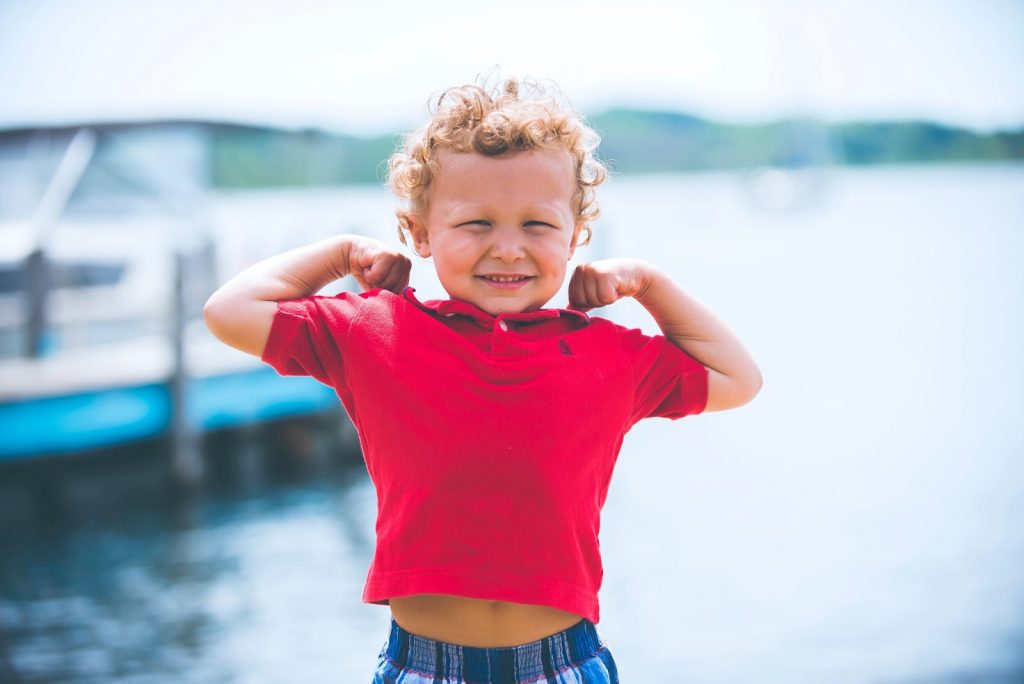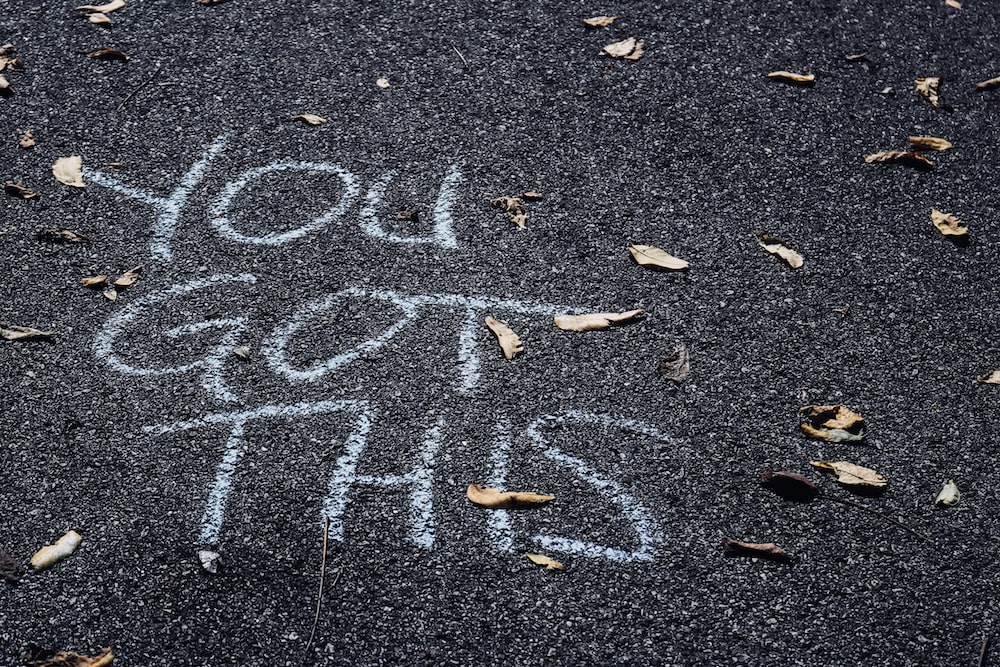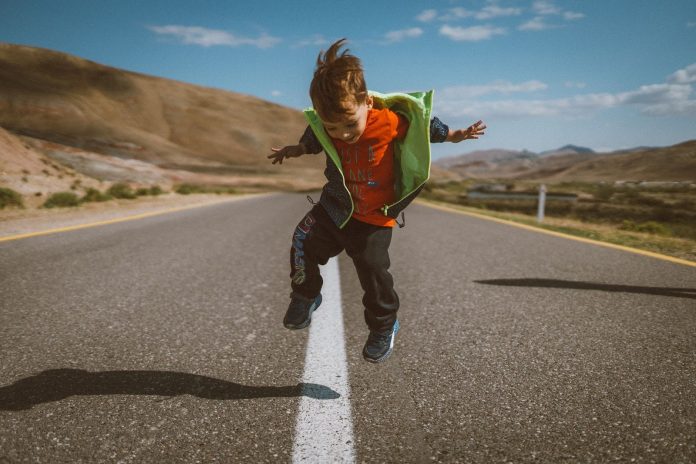Self-esteem is an important part of who we are and how we feel about ourselves. It’s the way we view ourselves and our abilities, and it can affect how we think, feel, and behave. Having good self-esteem can help kids feel confident and capable, while low self-esteem can lead to negative thoughts and behaviours. Adults need to encourage kids to indulge in self-esteem activities for kids to focus on their strengths, set goals, and celebrate their accomplishments to help boost their self-esteem. It’s also important to show kids that they are loved and valued and to help them build healthy relationships with others.
In this blog, you’ll get to know what self-esteem is for kids, how it can help them, how you can identify low self-esteem in kids and find self-esteem activities for kids to make them more confident.
Math & ELA | PreK To Grade 5
Kids see fun.
You see real learning outcomes.
Watch your kids fall in love with math & reading through our scientifically designed curriculum.
Parents, try for free Teachers, use for free
CTA: Here are more activities to boost the confidence of kids and make them better individuals!
Definition of Self-Esteem
Self-esteem is a person’s overall sense of self-worth and self-acceptance. It is an important part of our mental health and can have a significant impact on our thoughts, feelings, and behaviors. Individuals with high self-esteem feel confident in themselves and their abilities and generally have a positive view of themselves. On the other hand, those with low self-esteem may struggle with negative thoughts and a lack of confidence in their abilities. Self-esteem is also an important part of a child’s overall well-being. It has a huge impact on their behaviors as well.
Self-esteem is not fixed and can change over time. It can be influenced by many factors including a child’s learning experiences, relationships, and environment. It’s important to cultivate healthy self-esteem in children, as it can help with better decision-making, improved relationships, and greater success in various areas of their lives. There are many ways to help boost self-esteem in children. Some strategies are:
- Encouraging them to focus on their strengths and accomplishments.
- Setting achievable goals and celebrating their progress.
- Helping them build healthy relationships with others.
- Practicing self-care and taking care of their physical and emotional well-being.
- Seeking support from trusted adults, such as parents, teachers, or a therapist.
- Practicing positive self-talk and challenging negative thoughts.
Why Is Self-Esteem Important For Kids?

It is heartbreaking to see our kids lose hope and belief in themselves. We can see that they are capable of doing wonders, while some kids tend to give up and think they aren’t capable of completing a given challenge. This is a result of low self-esteem and must be dealt with properly to help them gain confidence. When you help a kid develop self-esteem, you help them build up confidence they need to face new challenges, ask questions, have the conviction that learning from mistakes is essential, accept accountability for their actions, have the capacity to build wholesome relations, respect themselves and to have the awareness that they are in charge of their life.
You would always want your kids to avoid having low self-esteem as it contributes to them feeling like they’re a failure and that they cannot succeed in their classes and school. Having low self-esteem also makes kids feel angry, frustrated, anxious or defeated at times and makes it difficult for them to make new friends, be bullied and be withdrawn from their peers. It also develops negative coping mechanisms for challenges, such as quitting, denying to deal with their problems or being silly.
What Factors Contribute To Self-Esteem Issues?
Children’s self-esteem is affected by a variety of things in everyday life. Just like adults, they go through rough patches in their lives and have some good and some bad days. The problem with kids facing difficulties is that those difficulties or challenges can stay with them for a very long time, and this can even change how they see themselves as well as the world around them. It can affect them more critically than we realize. Here are some things that may affect a child’s self-esteem:
- Negative experiences like bullying, abuse, or trauma
- Lack of support and encouragement from parents or caregivers
- Comparison to other children
- Perfectionism and difficulty accepting their mistakes
- Negative self-talk like constantly criticizing themselves
- Difficult life circumstances like poverty or family issues
- Weight issues
- Difficulty with fitting in
- Feeling left out
- Struggling at hobbies
Even though there are a lot of things we cannot control that affect the self-esteem of kids, we can still try to reverse the effect of negative events. It is possible to enable kids to have higher self-esteem and improve their relationship with themselves, and improve their confidence.
How To Identify Low Confidence or Self-Esteem In Your Child?

It is important to understand when your child is suffering from low self-esteem and what is causing it. If you’re able to read the signs, you will also be able to help them out of this difficult situation at the right time. This will further help you stop the situation from getting worse and taking it into the direction of improving their self-esteem. Here are some signs your child is suffering from low self-esteem:
- Lack of willingness to try new things or accept challenges. A child who is hesitant to try new activities or participate in class discussions may be lacking confidence in their abilities.
- Kids with low self-esteem also tend to lack confidence and excitement, and are generally less passionate about things.
- Another sign to watch out for is a child who is constantly seeking approval from others, or who becomes upset or anxious when they receive criticism. This can indicate that the child is lacking self-confidence and is unsure of their self-worth.
- A child who is suffering from low confidence or self-esteem may also have difficulty in making and maintaining friendships, as they may feel inadequate or unworthy of social connections. This can lead to social isolation and a lack of participation in group activities.
- Kids with low self-esteem also have issues communicating with their peers and others. This is because they do not feel confident enough to be able to freely go and talk to others and express their thoughts.
- Physical signs, such as poor posture or lack of eye contact can also indicate low confidence or self-esteem. A child who is constantly looking down or avoiding eye contact may be lacking confidence in themselves and their abilities.
How Can Parents Help Build Confidence in Kids?

Parents play a primary role in building and improving the self-esteem of their kids. If you’re a parent and are seeing signs of low self-esteem in your kids, worry not, there are many confidence building activities for kids to help them out of this situation. Some ways you can help rebuild the self-esteem of your kids are:
- Provide positive reinforcement: Show your children that you believe in their abilities and encourage their efforts. This can be as simple as praising their achievements or acknowledging their hard work. Positive reinforcement can play a crucial role!
- Encourage independence: Allow your children to make their own decisions and solve problems on their own. This helps them feel capable and confident in their own abilities.
- Help them set goals: Encourage your children to set goals and work towards achieving them. This makes them feel a sense of accomplishment and pride in their achievements.
- Encourage them to try new things: Help your children step outside of their comfort zone by encouraging them to try new activities or hobbies. This helps them develop new skills and feel confident in their abilities.
- Be a good role model: Children often look up to their parents and model their behaviours. Show your children how to be confident and positive by being a good role model yourself. By doing this, you can also implement good manners for kids.
- Help them develop their strengths: Encourage your children to pursue activities and hobbies that they enjoy and that allow them to use their natural strengths. This helps them feel confident and capable of their abilities.
- Encourage growth mindset: Help your children believe that they can learn and improve in any area. Encourage them to try new things and take on challenges, even if they are difficult. This helps kids develop a growth mindset and become confident in their skillsets and ability to learn and grow.
- Don’t compare them with other kids: Know that every child has special talents and abilities. If your kid is not good at one activity, don’t compare them with other kids. This will make them feel inferior and less talented than others.
Related Reading: Enjoyable Kids’ Activities for a Whoopee Time
20 Self Esteem Activities For Kids To Build Their

There are various activities your kids can do to build their confidence and self-esteem. Here are 20 of the best self esteem activities for kids:
1. I am afraid but..
You will need: Pen and paper
How to do:
First, ask your kid to write one thing they are the most afraid of. For example, they might be afraid of speaking out in class. Ask them to write the sentence “I am afraid of speaking out in the class”. Next, ask them to imagine doing that thing and then make them write a negative and a positive outcome of the activity. Ask them to list more things they’re afraid of and then continue the same exercise.
This is one of the great self esteem building activities that will help them realize that the thing they’re most afraid of isn’t as scary as they were thinking it was, and this would encourage them to do it. This will also teach them to walk through their fears rather than running form them.
2. Important Chores
You will need: any chore around the house
How to do:
This is one of the most effective self esteem activities for kids. Just assign your kid a specific chore of the day or make them choose one. This should be easy to do and should be an important chore to instil a sense of responsibility in them. For example, if you ask them to water plants, let them know that it is an important task that they need to take responsibility for every day. Appreciate their efforts and give them constant compliments.
3. I Am
You will need: Pen, paper, glue and a picture of each kid
How to do:
Ask your kids to stick each of their respective pictures in the centre of a piece of paper and ask them to draw a circle around it. In this circle, they will write each of their roles (like daughter, student, football player, etc). Now ask them to draw an outer circle and write some of their positive qualities in this circle. Now ask kids to work together and help each other identify more positive qualities about each other. This activity will help kids build a positive self-image and gain confidence. This will also help them see each other in a more positive light.
4. Writing Affirmations
You will need: Pen and paper
How to do:
Ask your kids to write an affirmation on paper. Stick the affirmations on the fridge, their study table, a whiteboard or on any other surface that is visible regularly. Encourage the kids to revisit the affirmation they had written for themselves and help them build a positive narration in their heads.
5. Board of Happiness
You will need: Pen, paper, a notice board and some pins
How to do:
This is one of the best self-esteem activities for kids. Ask your kids to write a happy memory they love to think of, or ask them if they have a picture of this memory. This might be a holiday, or a time their parents appreciated them or gave them a gift they had always wanted. Stick these notes and pictures on the notice board and encourage the kids to go and revisit the board every once in a while. This will incorporate a feeling of gratitude and happiness in them.
Related Reading: Brain Boosting Memory Games for Kids for Enhanced Learning
6. What I Love About You Letter
You will need: A paper and pen
How to do:
Write your kid’s name in the middle of the paper and ask each family member to write two things they love about them. This could be any of the qualities that they like. Just make sure you do not mention a physical attribute instead. Pin or stick this paper in the kid’s room so they can look at it whenever they feel underconfident. This will let them know that they are loved and appreciated in all situations.
7. Goals Journal
You will need: Pen and paper
How to do:
Ask your kids to write a goal they want to achieve in the coming month or quarter. Ask them to also write down a plan on how they would achieve the goal. Now ask them to write about the obstacles they might face in achieving this goal and how they plan to overcome those obstacles. Now, every week, check with the kids on their progress towards the goals and if they need to alter their plans. When a kid completes a milestone, celebrate their victory with the whole class or family.
8. Changing Self Talk
You will need: Pen and paper
How to do:
Ask your kids to draw a line in the middle of the paper and name one side “Positive Self Talk” and the other side “Negative Self Talk”. Now, ask them to write very negative self-talk statements they have in their heads and convert the same sentences into positive self-talk in the other column.
9. Create Anything
You will need: Random items, toys, lego, etc.
How to do:
Just lay the random items you have on a table or tray and ask the kids to pick anything and create something out of it. Watch their creativity explode as they create toys, and crafts for kids from the given items. You can do this with a Lego set too. Since there is no right or wrong in this activity, it will be a huge self-esteem booster for all the kids when they create something meaningful out of random things.
10. Group Board Games
You will need: Board games like Stone Soup, the Secret Door, etc.
How to do:
Introduce group board games for kids and play in teams. When kids become part of a team, they feel important and valued, and this boosts their self-confidence and self-esteem.
Related Reading: Best Educational Video Games for Kids to Promote Learning
11. Serve a Snack
You will need: A kitchen, utensils, food, etc.
How to do:
If you’re looking for really cool self esteem activities for kindergarteners, this is for you. Ask your kid to make and serve a two-course meal to you and the family. This will be an open-ended challenge for the kids and will encourage them to think in different directions at once. Let them handle the task on their own and watch how creatively they set the table, cook food and serve it. When they’re done with the task, do not forget to appreciate their efforts.
12. Random Act Of Kindness
You will need: Nothing!
How to do:
Ask your kids to do a random act of service for anyone. This can be holding a door, helping someone out, or just lending an ear to someone who is sad and needs to talk. When the day ends, you can ask them to share what they did and how it made them feel. Kindness activities for kids can help in developing confidence and feeling good about themselves while listening to others with patience.
13. Packing For A Trip
You will need: A suitcase or bag
How to do:
The next time you’re going on a trip, ask your kid to pack the bag for themselves. Encourage them to sit and think about everything they’ll need for the trip and pack it themselves neatly. If you notice they’re forgetting something, try to ask them if they have everything they need and if they’re sure about it. Try not to tell them what they’re missing directly. This will encourage them to be independent and instill confidence in them.
14. Gratitude Journal
You will need: Paper and a pen
How to do:
Ask the kids to write 3 things they’re grateful for every day or give them a prompt like “2 people I am grateful for today are… because..” Practicing gratitude encourages kids to see the good in the world and thus encourages them to see the good in themselves too, thus increasing their self-esteem.

15. Bucket List
You will need: A paper and pen
How to do:
This is one of the easiest self-esteem activities for kids. Just ask the kids to create a bucket list of what they want to do in the coming few years or maybe in a shorter period of time (like summer vacations). Hang the lists someplace that are visible easily and start the day by looking at them. This will be a reminder for everyone to work towards their goals and will also prove to be a confidence booster when they complete one of the tasks from the list.
Related Reading: Amazing Writing Prompt For Kids To Improve Confidence
16. Big Wins
You will need: A paper and pen
How to do:
Each kid must divide the sheet of paper they have into two columns. One must list all the wins they have had in the past month or 3 months. You can decide the frame of time. The next column must talk about the things they would like to accomplish in the coming quarter or month.
17. Box Of Memories
You will need: A big box
How to do:
Store all the photographs, certificates, medals and prizes your kid has won in school or other places in the box. This should also include participation certificates and consolation prizes. Remind them that participating is also a win for them and give them the box to explore every few months to remind them how far they’ve come and how they’ve overcome all the challenges in their life.
18. Love Letter For Yourself
You will need: A paper and pen
How to do:
This is easily one of the best self esteem activities for kindergarteners. Ask the kids to write a love letter to themselves on a sheet of paper. The only condition is, all the sentences in the letter must start with “I am” and should have a good quality about them. This simple self-esteem exercise for kids will help them build self-confidence and self-esteem. Encourage them to read the letter every few months to remind them of their strengths.
19. Affirmation Of The Week
You will need: Nothing!
How to do:
Create a positive affirmation for kids that they can relate to and benefit from each week. Write this affirmation in big, bold, and colorful font and stick it on the notice board. Keep reminding the kids of this affirmation and encourage them to say it out loud or to themselves every once in a while.
20. Ask Open-Ended Questions
You will need: A pen and paper
How to do:
Ask the kids some open-ended questions like “Where do I see myself in 2 years?”, “I have always wanted to..”, etc. and have them write the answer on a paper. You can also encourage them to share their answers with the family or class later.
Related Reading: Great Ice Breaker Questions for Kids to Ask Each Other
Conclusion
Kids like to try a lot of activities and it’s easy for everyone to feel low at certain times. Practicing the discussed activities will not only help them get up and get going again, but will also strengthen your relationship with them. Always remember that your support and love goes a long way in filling your kids with self-esteem.
Frequently Asked Questions (FAQs)
At what age does a child develop self-esteem?
According to a paper published in the Psychological Bulletin, self-esteem is seemed to develop between the ages of 4 to 11 in kids. At this age, kids also develop social skills and a sense of independence.
Is there a specific type of parenting style that causes high or low self-esteem in kids?
Yes, according to clinmedjournmals.org, self-esteem is seen to be the highest among kids who have supportive and positive parents and the lowest in kids who have neglectful or abusive parents.
Is there a way to measure a child’s self-esteem?
Yes, there is a test called Pope’s 5-Scale Test of Self-Esteem that has 60 questions and 5 scales to evaluate self-esteem in kids. The 5 scales are the Global Scale, Academic Scale, Body Scale, Family Scale, and Social Scale.
























